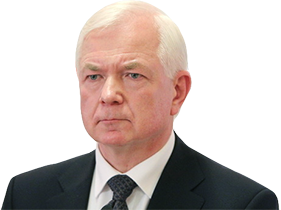Ahead of strategically important meetings, such as that with the G20 leaders, Putin creates the motivation to implement the scenario of pressure on the Ukrainian president regarding the fulfillment of Minsk Agreements. The current escalation in Donbas is yet another stage, which the enemy wants to show at a new strategic level as an acute phase, aiming to have it solved through the recognition of militants as a party to the conflict and making Ukraine negotiate with them directly to achieve a ceasefire.
The thing is that Russia accuses Ukraine of escalating the situation, saying Kyiv allegedly violates the ceasefire deal and shells civilian neighborhoods. Extremely powerful shellings, with the use of bombs and missiles, are brought up to the table. That’s how Russia turns everything upside down: It delivers allegations that it’s the Ukrainian forces who strike first, leading the other side to return fire, which Moscow says threatens to turn into a large-scale offensive. Russians claim that the situation could trigger an all-out war.
These were exactly the arguments Putin voiced during his talks with Macron when he visited France, and earlier during his telephone conversations with Merkel and Trump. All Western players agree that it is necessary to implement Minsk Agreements. But Putin assumes that they will be implemented according to the Russian scenario, which primarily involves the recognition of militants as a party to the conflict. He wants Kyiv to sit down at the table with them to achieve settlement. He also wants Ukraine to adopt amendments to the Constitution without Kyiv first re-establishing control over the parts of Ukrainian border with Russia, and then, to hold elections in the occupied territories of Donbas.
Look how the situation has been changing: when there was no increase in shellings, there suddenly emerged some "Ukrainian saboteurs" in Crimea; that is Russia was trying to accuse Ukraine of sabotage, which the West always fears
And there’s always the same way Putin acts to achieve his goals – that is, by escalating and radicalizing the situation. And it is only done through a hostilities format: new shellings and ever more grave threats. Look how the situation has been changing: when there was no increase in hostilities, there suddenly emerged some "Ukrainian saboteurs" in Crimea; that is Russia was trying to accuse Ukraine of sabotage, which the West always fears. But this doesn’t work as his scenario has been disclosed. So Russia has applied another option – it went for more powerful attacks on our territory in order to show that the threat is imminent of a large-scale war. Putin is trying to make Americans, Germans, and French to exert pressure on the Ukrainian authorities, to force them to agree to a Russian scenario.
Ahead of the G20 summit and the meeting of the Normandy Four leaders, I don’t exclude that we will see hundreds of attacks a day, with the use of heavy weapons and artillery in at least 12 areas: Mariupol, Avdiyivka, Pisky, Donetsk airport, Stanytsia Luhanska, Yasinuvata, and so on. Such attacks can be expected closer to the date of negotiations, but not necessarily on the day they are held, rather ahead of them - to encourage the sides to shape the agenda in line with the Russian scenario. What we see is happening now, perfectly fits into the Russian strategy.
Ukraine should expose such plans and provide such information at the international level, in the media, and in the diplomatic format, definitely confirming it with facts on when and how these attacks occur, and what the consequences are.
Ukraine should expose such plans and provide such information at the international level
It is also necessary to achieve expansion of the format of support for Ukraine, involving the U.S., European countries and the G20. We should show the G20 leaders the looming threat of global confrontation, up to the possible use of nuclear weapons. This should make these countries to join efforts on Donbas settlement.
A "Road Map" should also be developed to resolve the situation in eastern Ukraine, under the auspices of the G20. Only then will some prospects of resolving the conflict will appear. Under the auspices of the Contact Group, which now operates within the framework of the Minsk process, it seems to be futile because there dominates the Russian scenario that will drag on for years, as it happened in Abkhazia, South Ossetia, Transnistria and other "hot spots."
Mykola Malomuzh is a former head of the Foreign Intelligence Service of Ukraine, Army General of Ukraine


